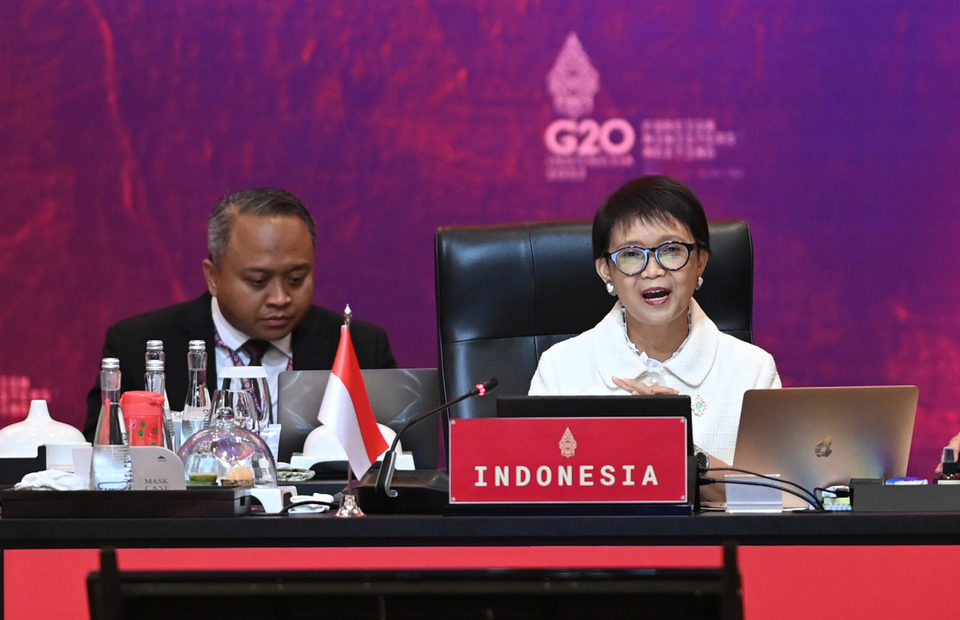Jakarta – Members of the G20 have expressed concerns about soaring global food and energy prices triggered by the war between Russia and Ukraine and expressed intent to solve the supply problem, Indonesian Minister of Foreign Affairs Retno Marsudi said Friday.
The war and subsequent sanctions against Russia had hindered wheat supply from the two countries, responsible for about 14 percent of global supplies, putting millions in many parts of the world at risk of malnutrition.
“All participants were concerned about soaring prices of food and energy and reiterated that the current crisis, including issues related to their accessibility, affordability, and sustainability, will continue to hinder global recovery,” Retno said.
“Developing countries will be the most affected, particularly low-income countries and small island developing countries there is an urgent need to address global food supply chain disruption reintegrating food and fertilizer from Ukraine and Russia into the global market is critical,” she said.
In her opening remark, Retno urged the Western countries and Russia to settle their “differences at the negotiating table, not at the battlefield.”
As a solution, many G20 members expressed their support for the efforts of the Secretary-General of the United Nations to provide a safe passage for distributing food and energy products from Russia and Ukraine.
“Several participants underlined that food and fertilizer are not subject to sanctions and stated that they are ready to overcome practical difficulties in conducting food and fertilizer trade, including payments, insurance, logistics, and others,” said Retno.
The meeting also discussed commitments to explore further G20 cooperation to strengthen food and energy security, including through the UN system or other international organizations.
The military aggression launched by Russia in Ukraine on February 24, 2022, has impacted world food security, considering that both countries are major agricultural product trade players.
Based on data from the Food and Agriculture Organization (FAO), Russia produces 11 percent of the world’s wheat, and Ukraine will account for 3 percent of the world’s wheat trade in 2021.
Many countries depend on food imports from Ukraine and Russia, especially in Africa, Eastern Europe, and Central Asia. Ukraine and Russia supply up to 80 percent of the wheat needs in Kenya, Somalia, Ethiopia, Armenia, Mongolia, Azerbaijan, and several other countries.
The war also accompanied the blockade of Ukrainian ports on the Black Sea. As a result, Ukraine cannot export its agricultural products to other countries. Western countries’ sanctions against Russia have contributed to aggravating the condition of the world’s food supply.
In retaliation, Russia has reduced or stopped exports of commodities that many countries need, including natural gas, to European countries.
FAO predicts food and animal feed prices will rise by 8-22 percent, and the number of malnourished people will increase by 8 million to 13 million compared to current conditions if the conflict continues.

